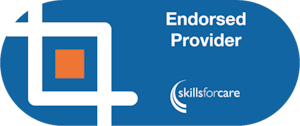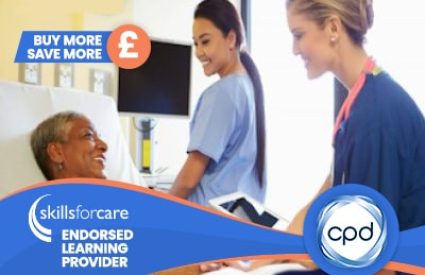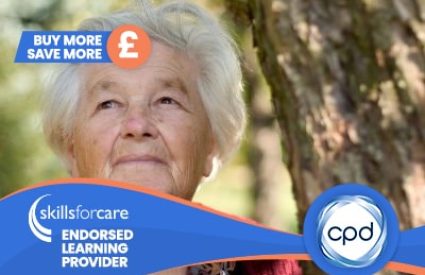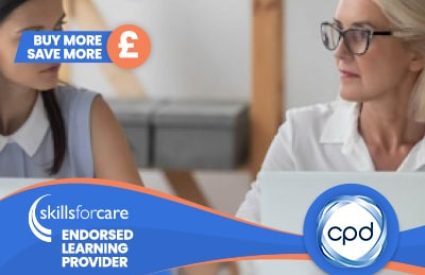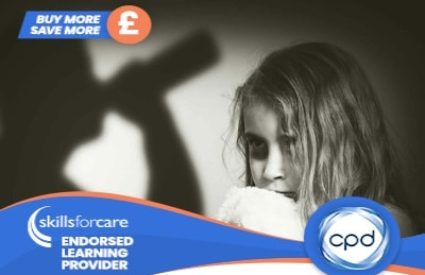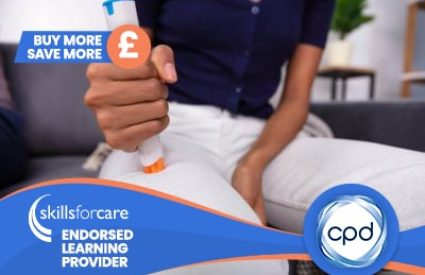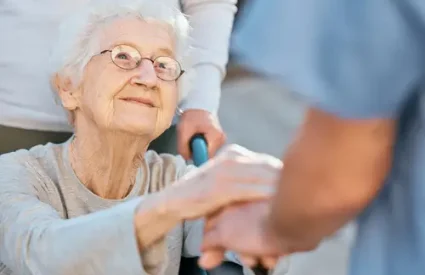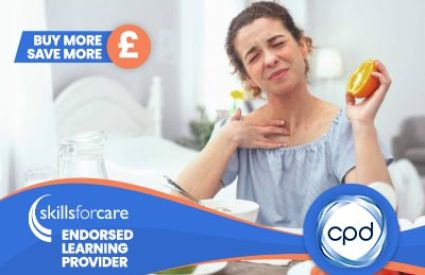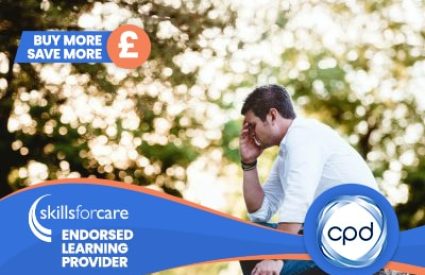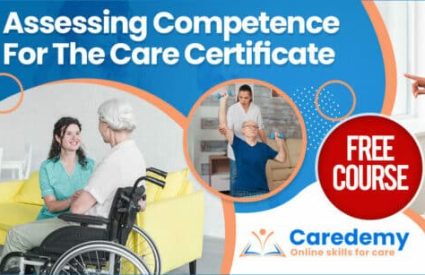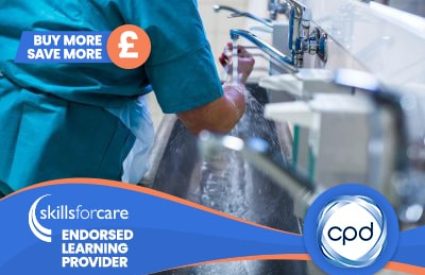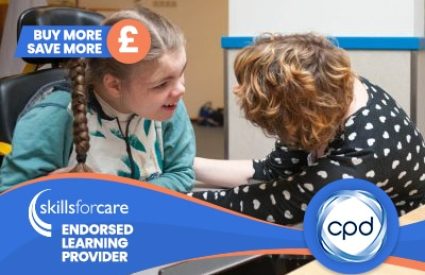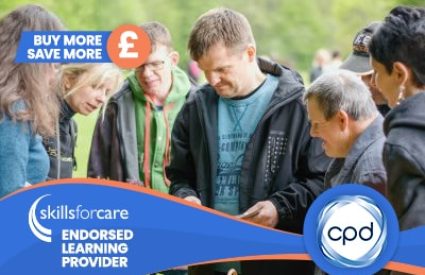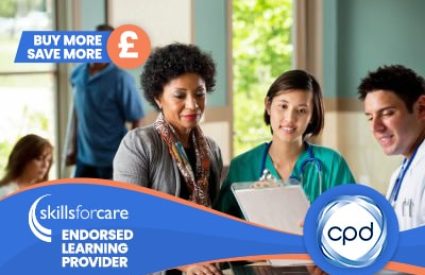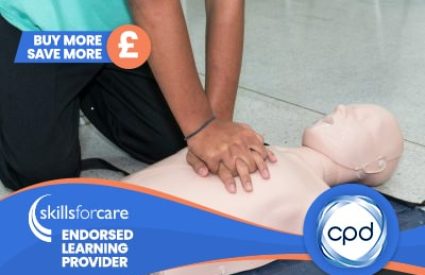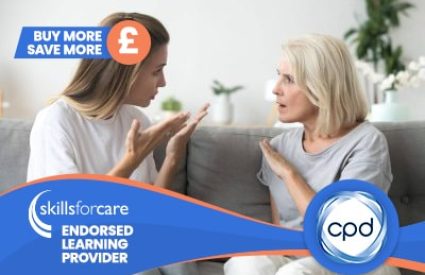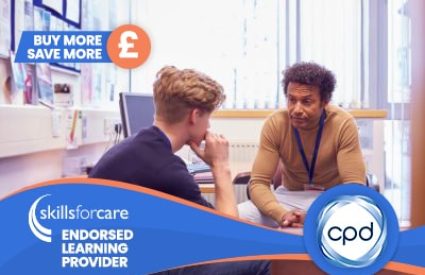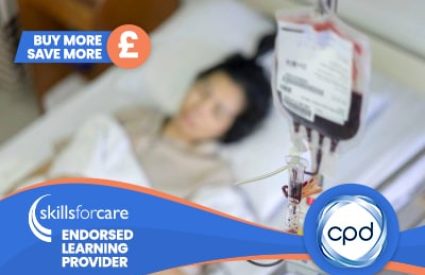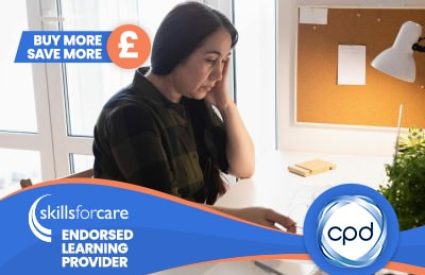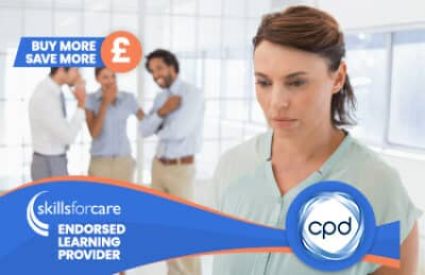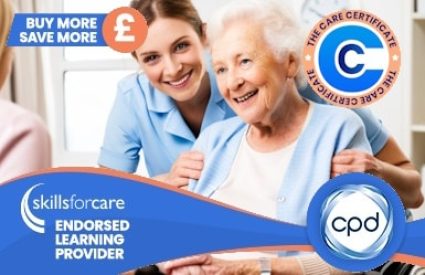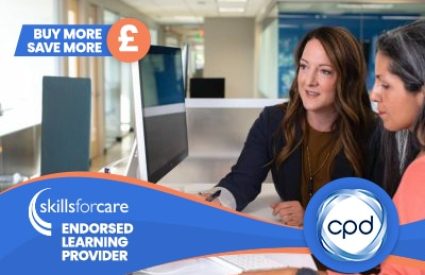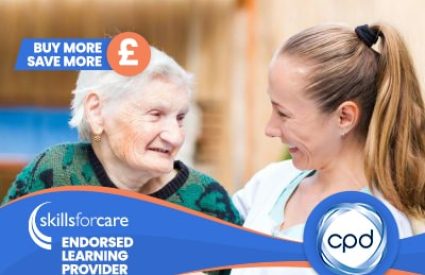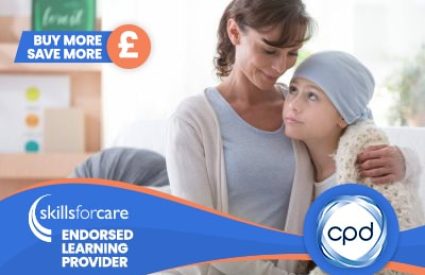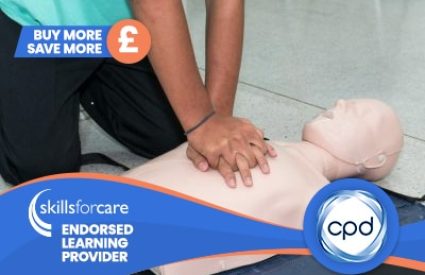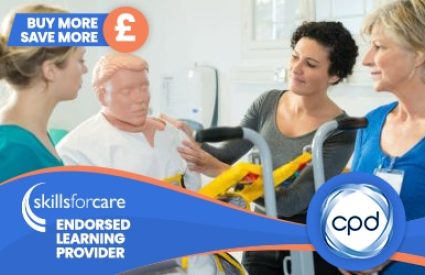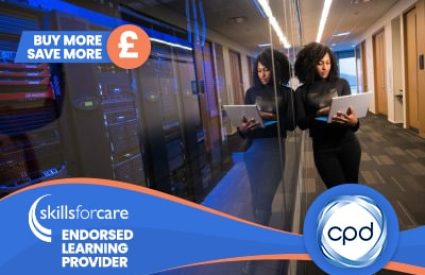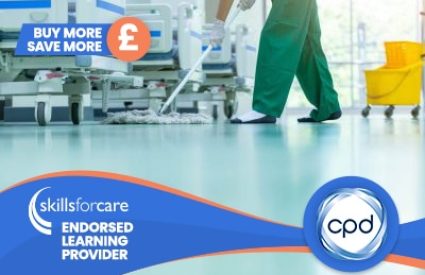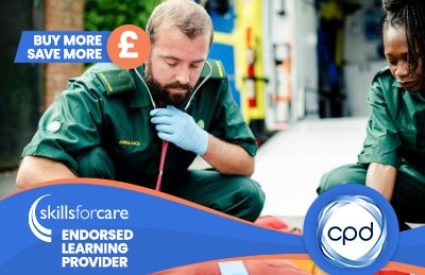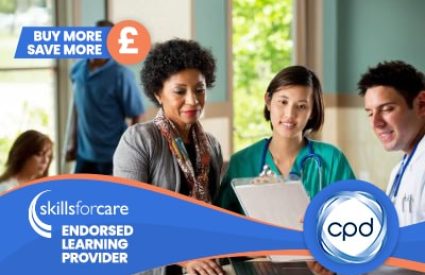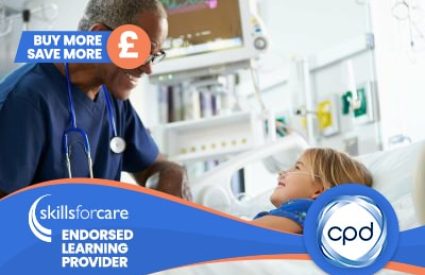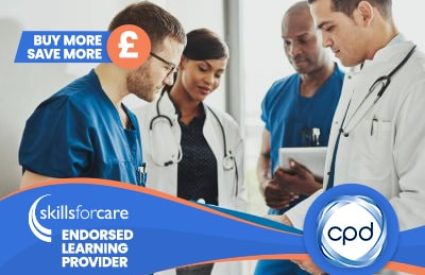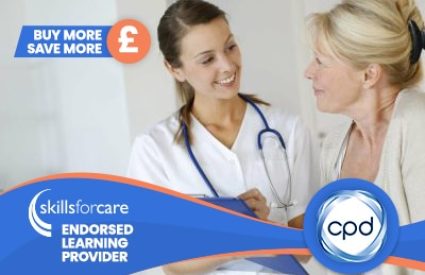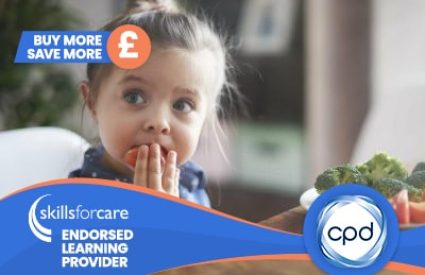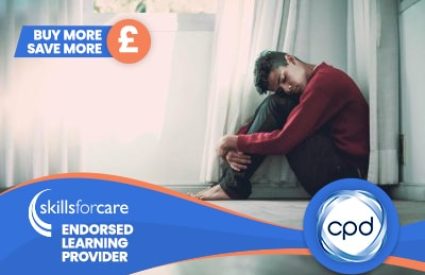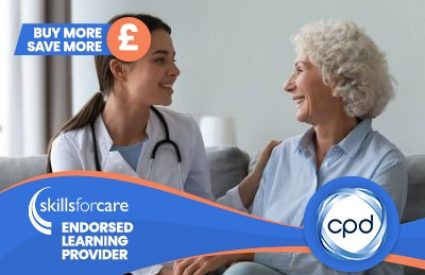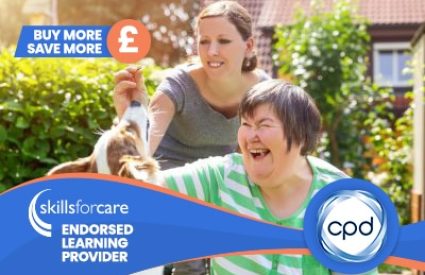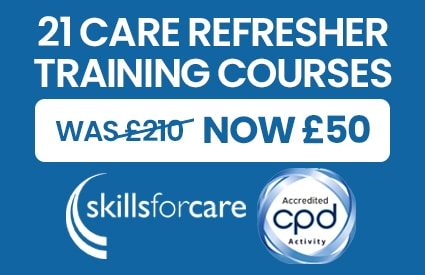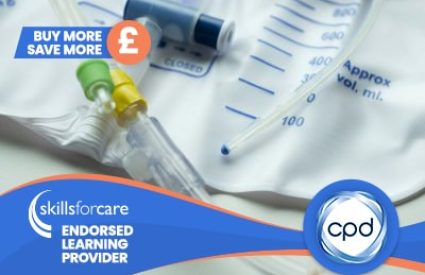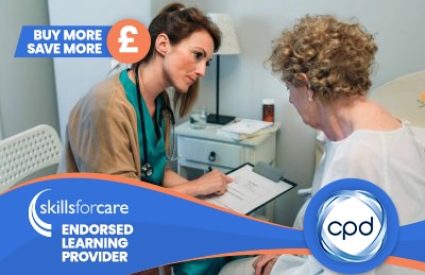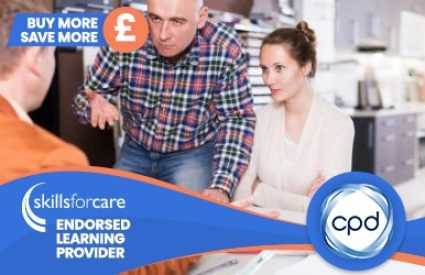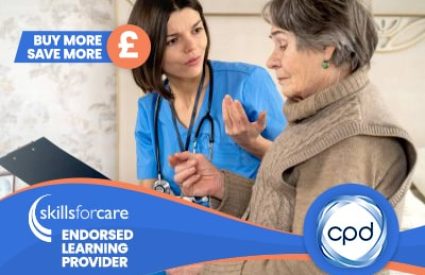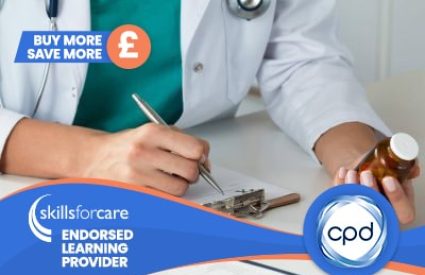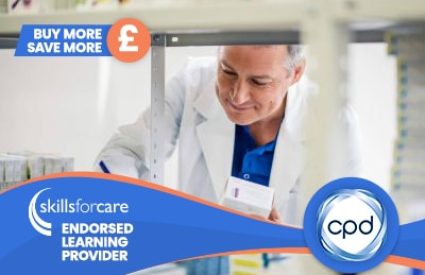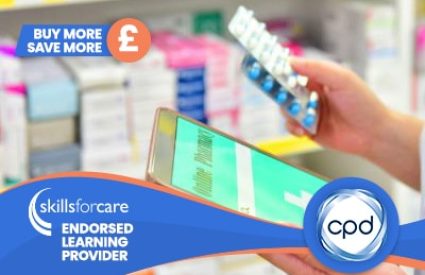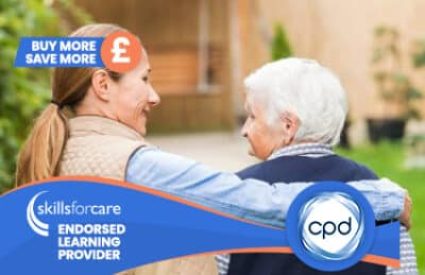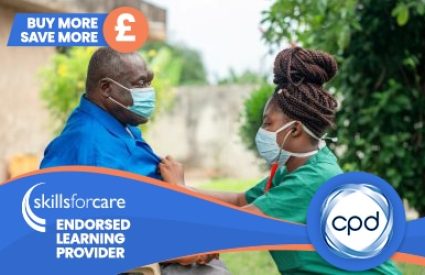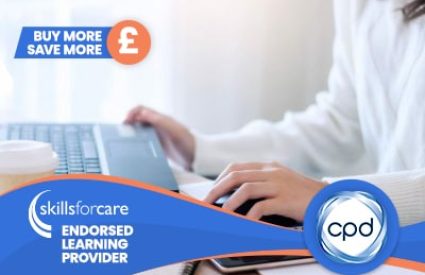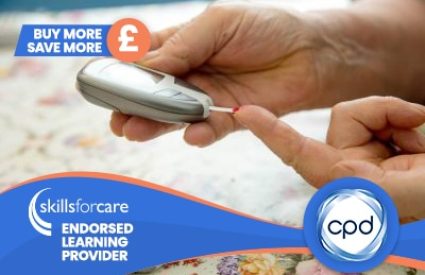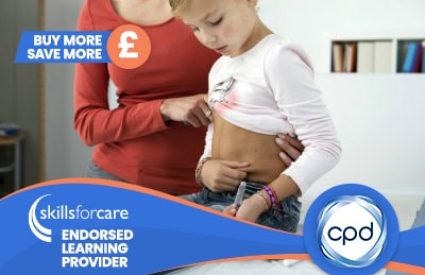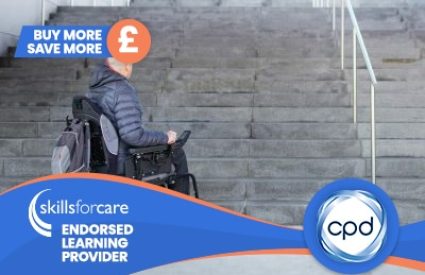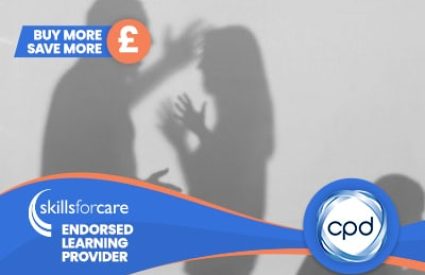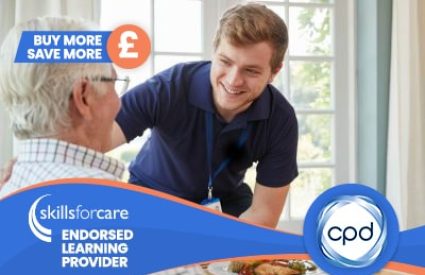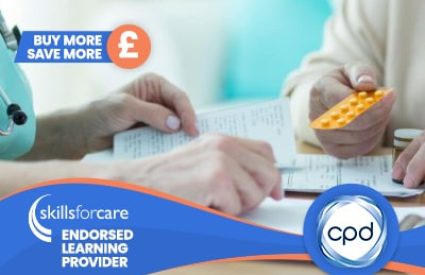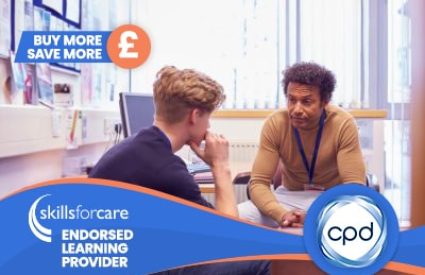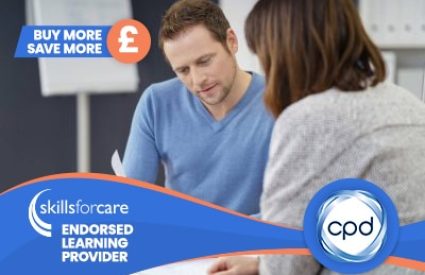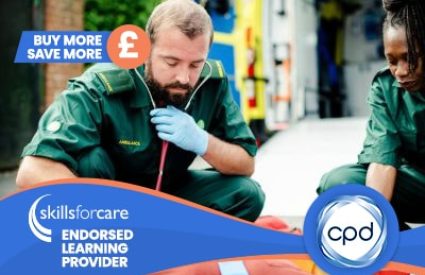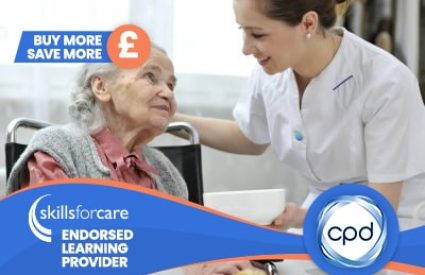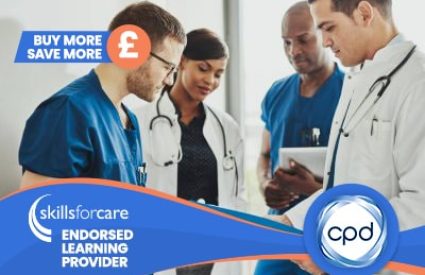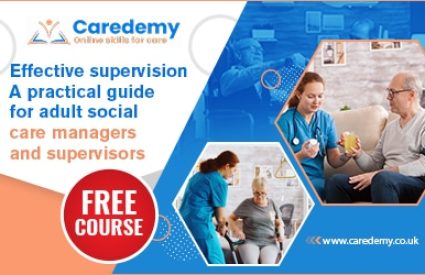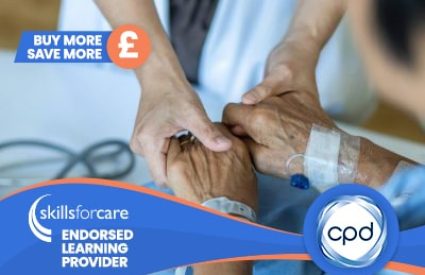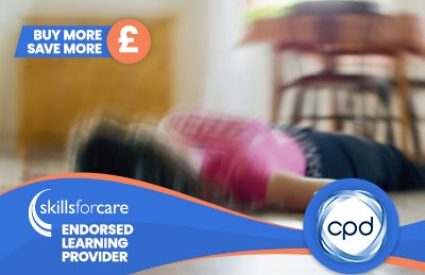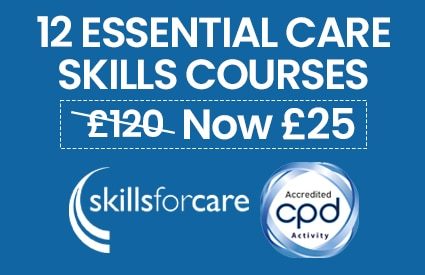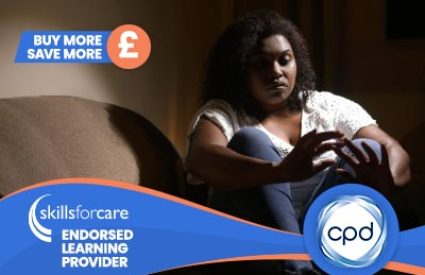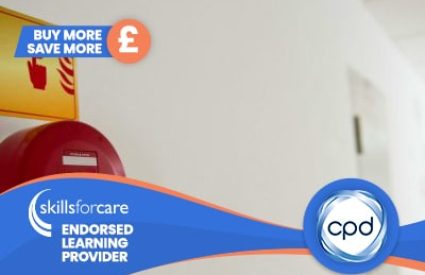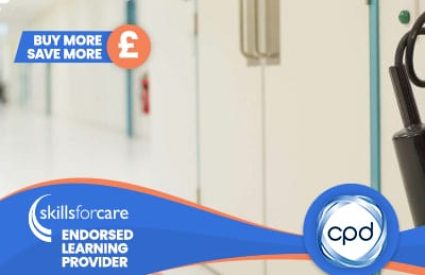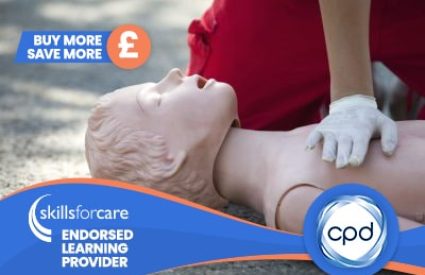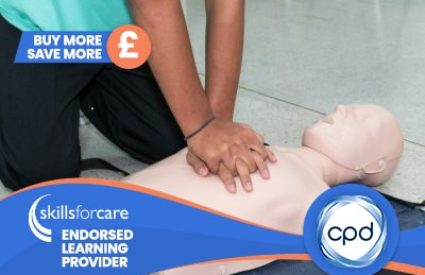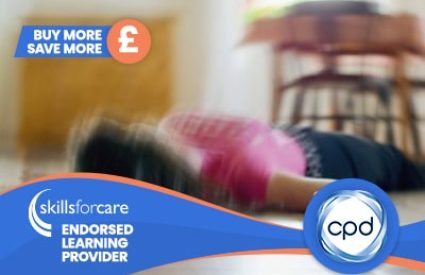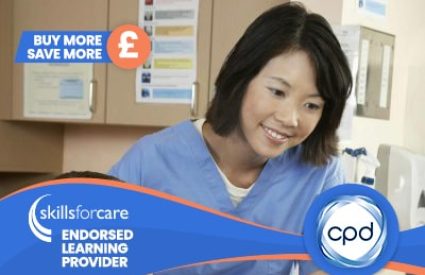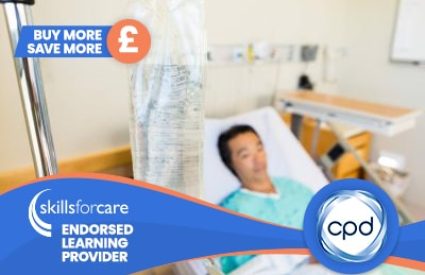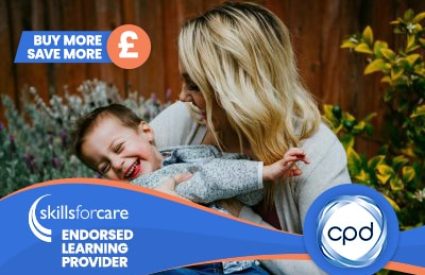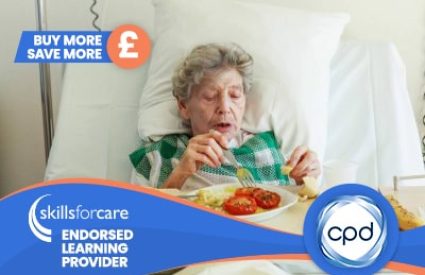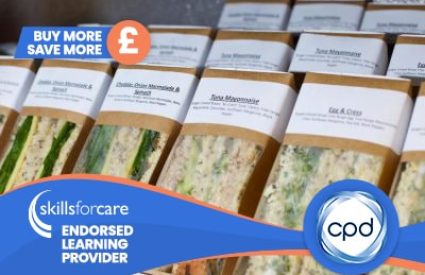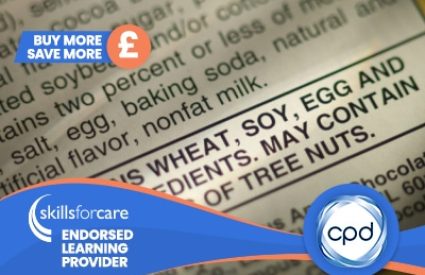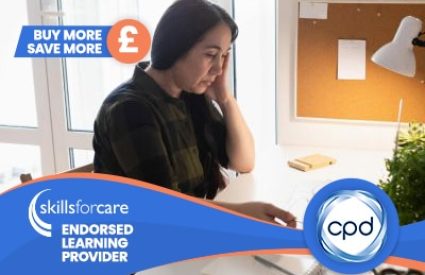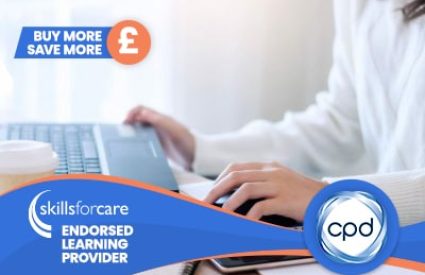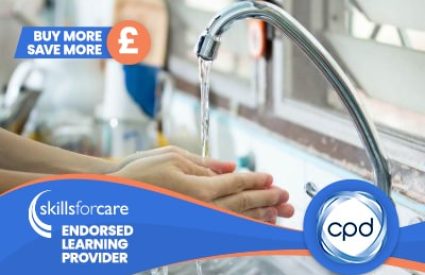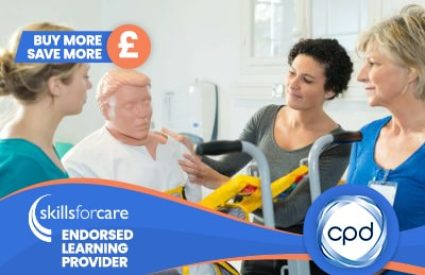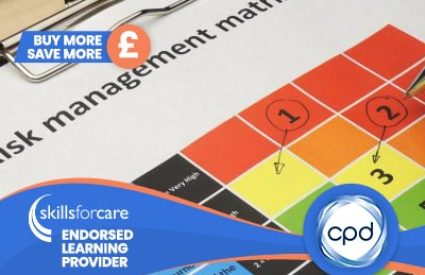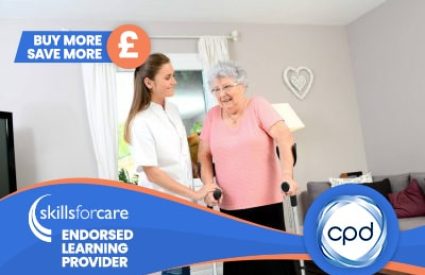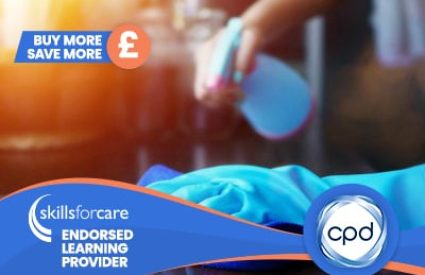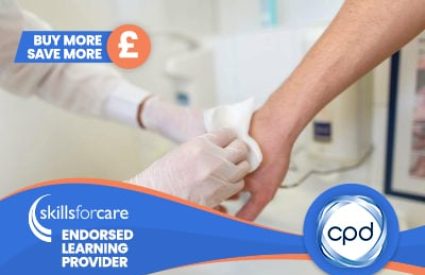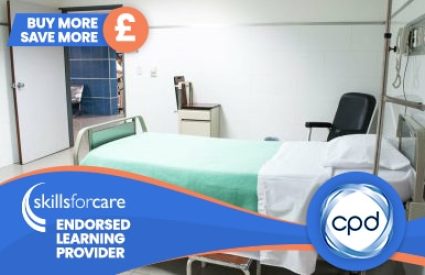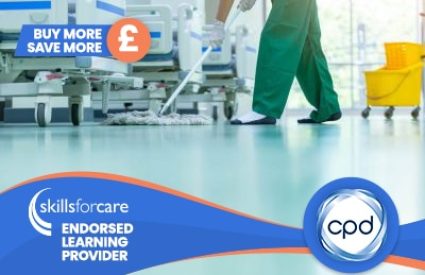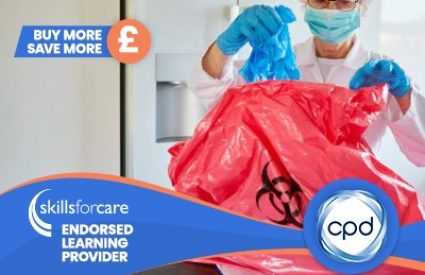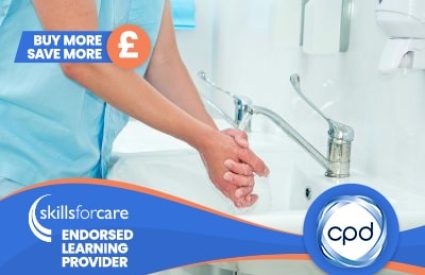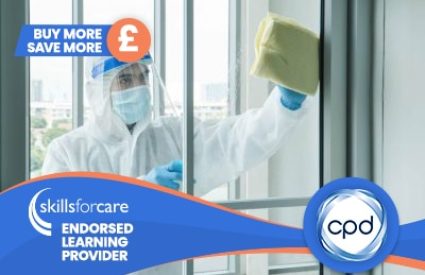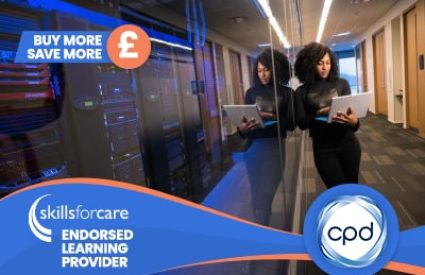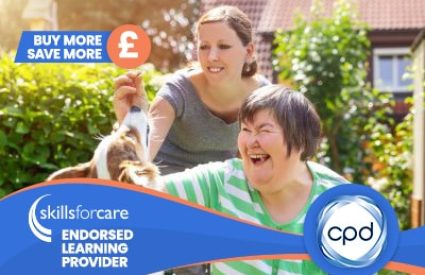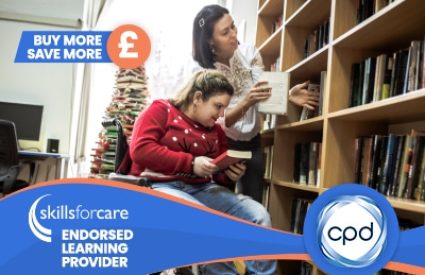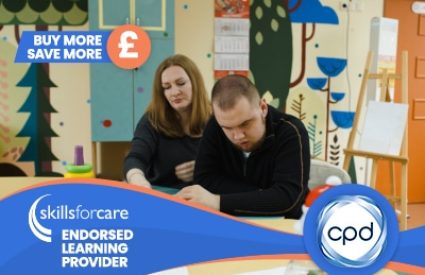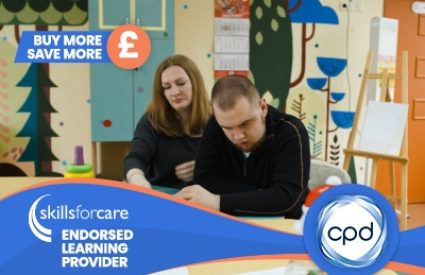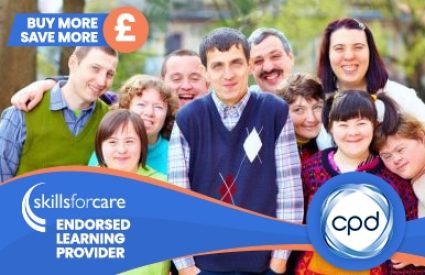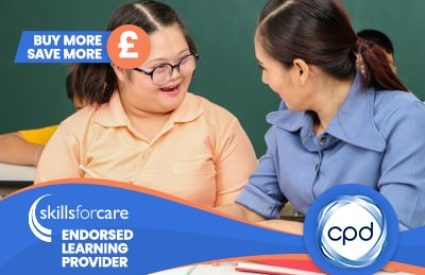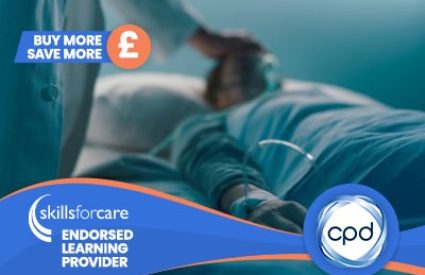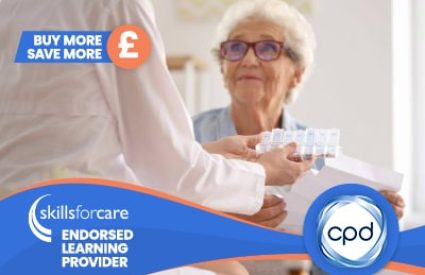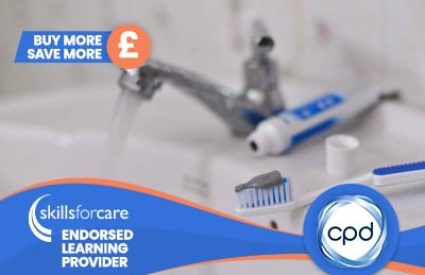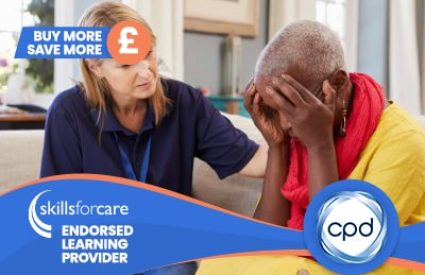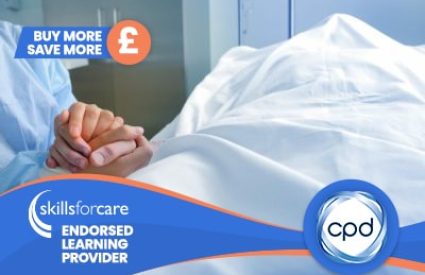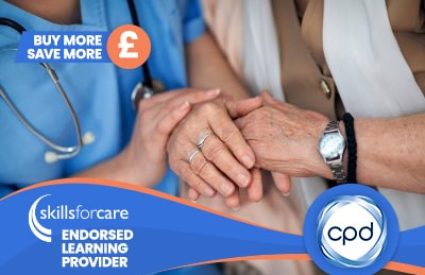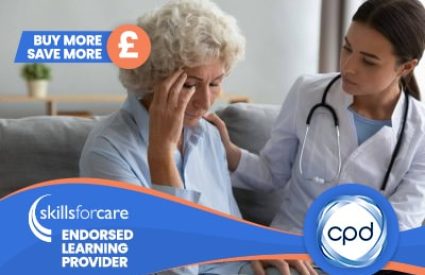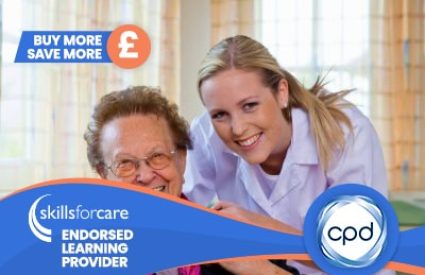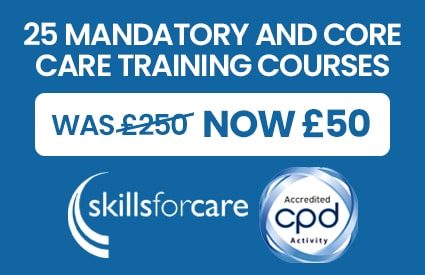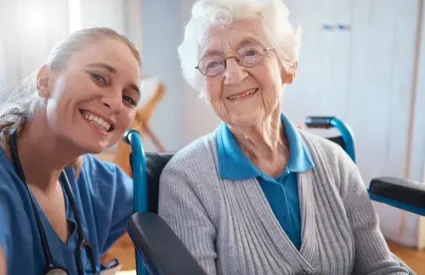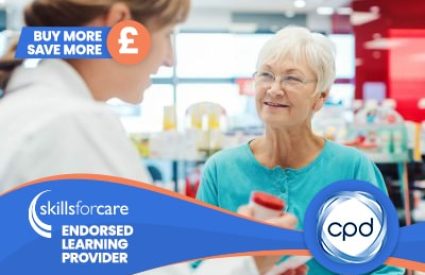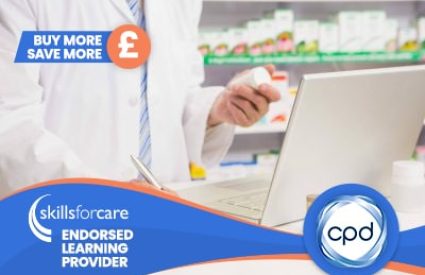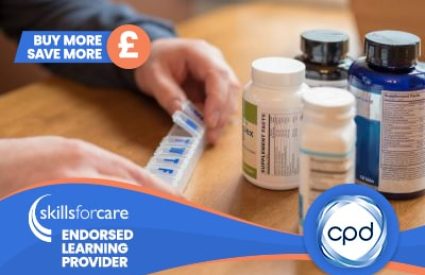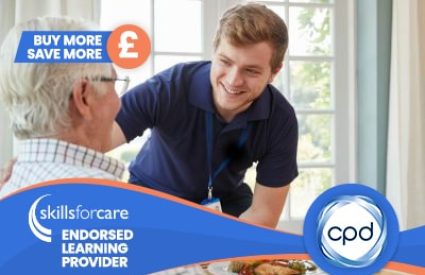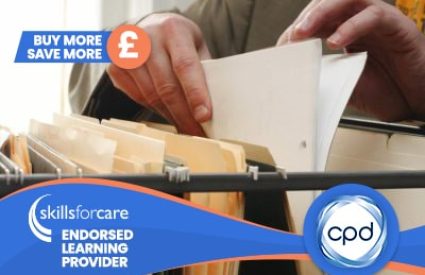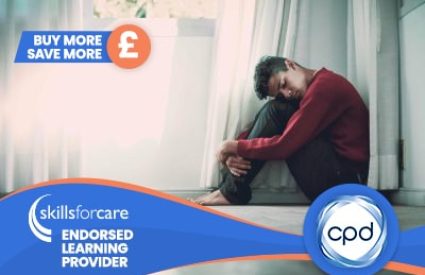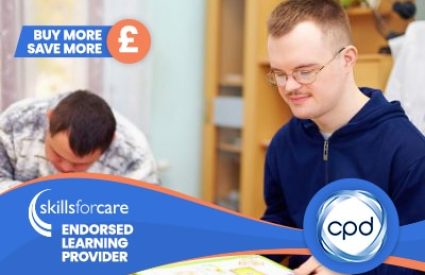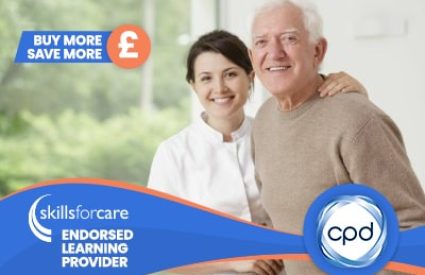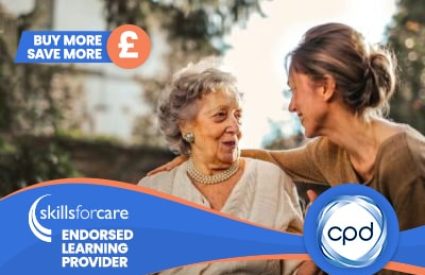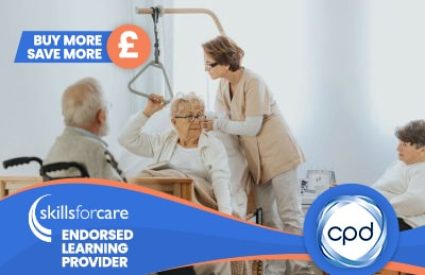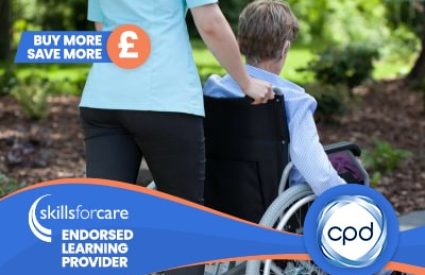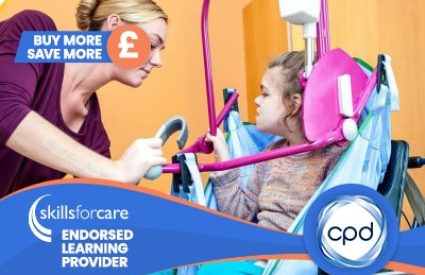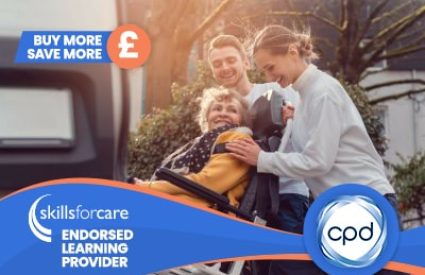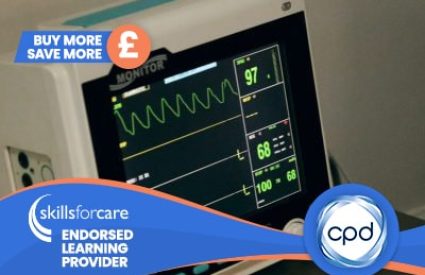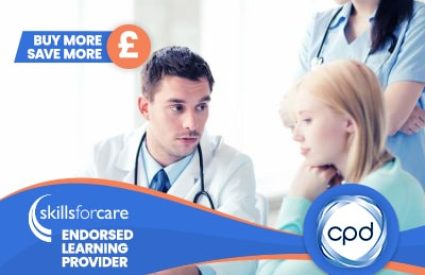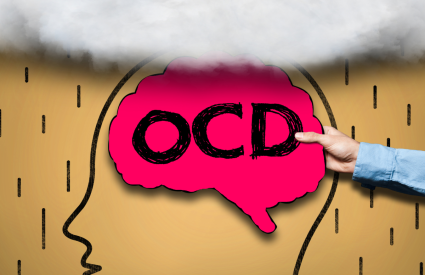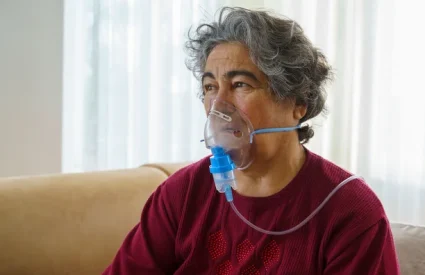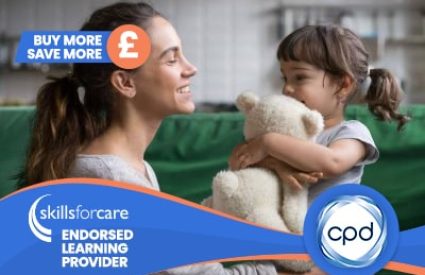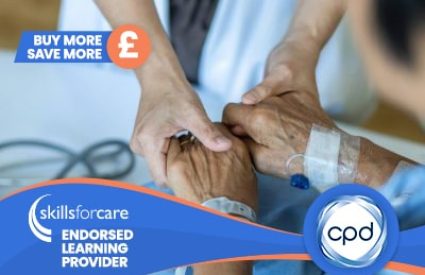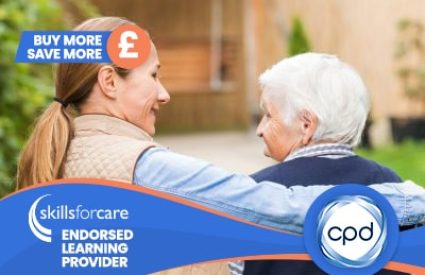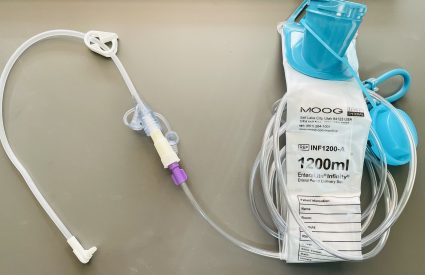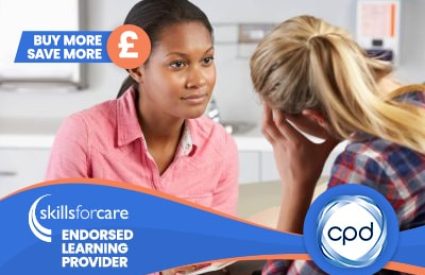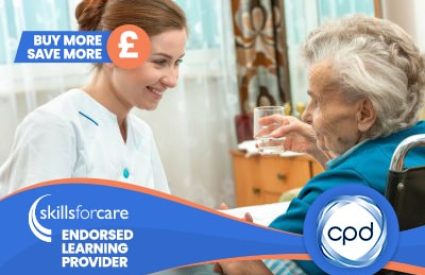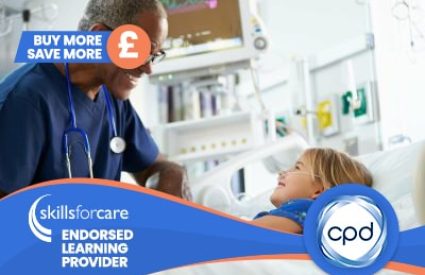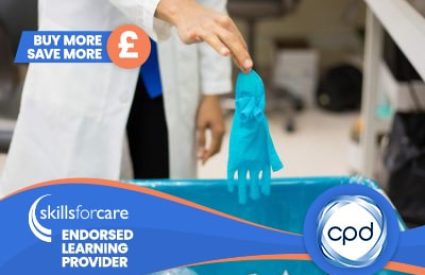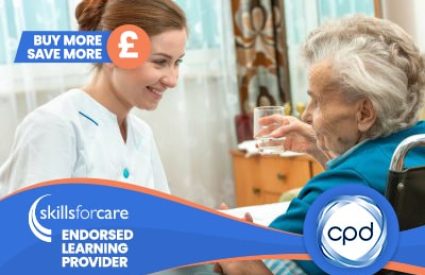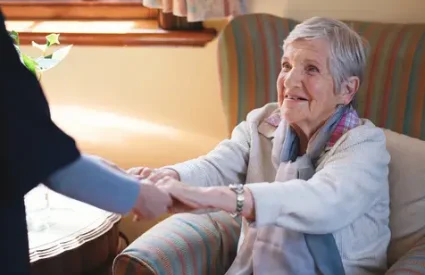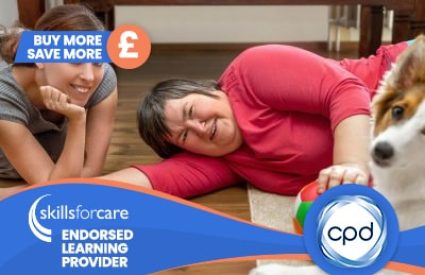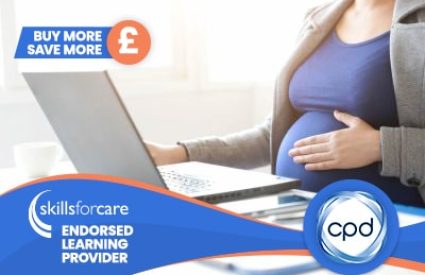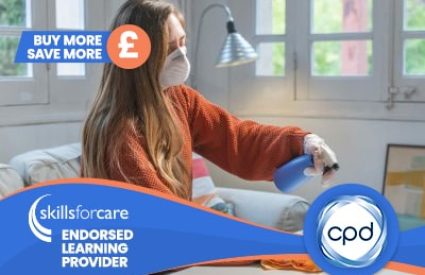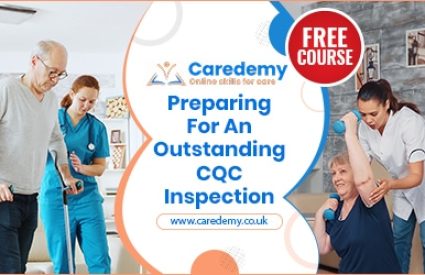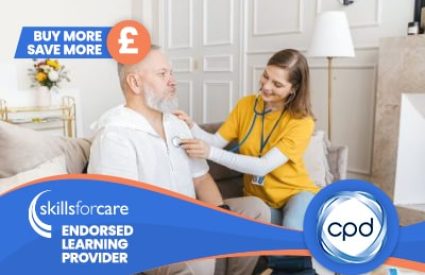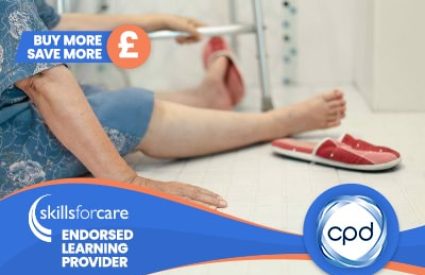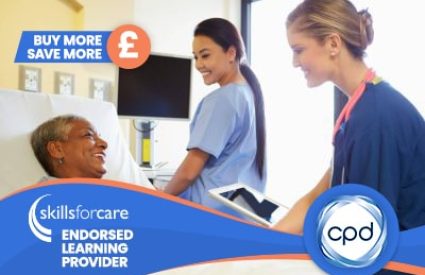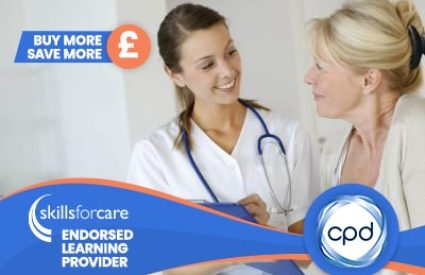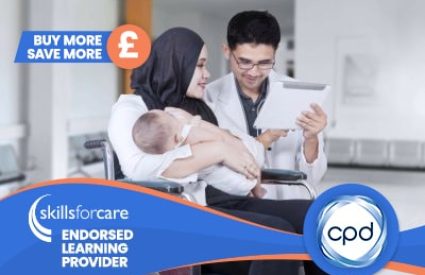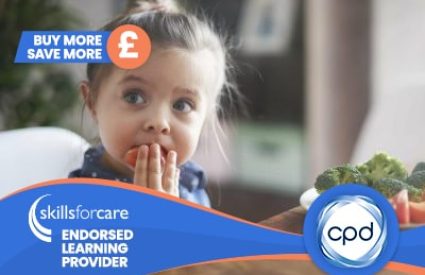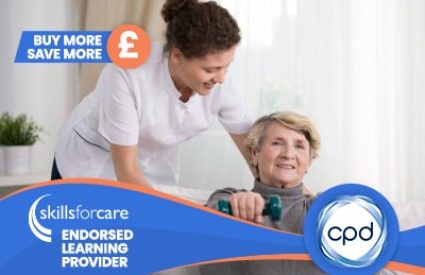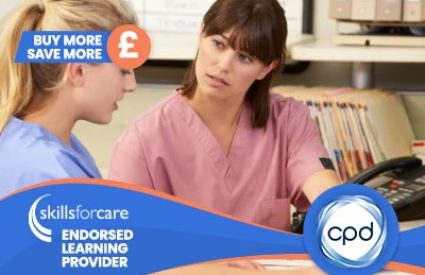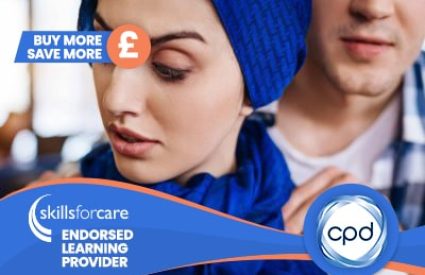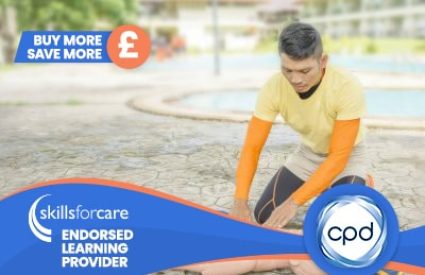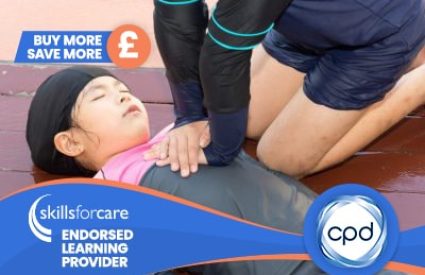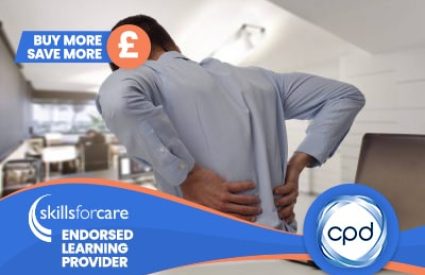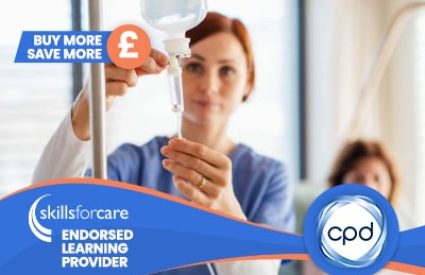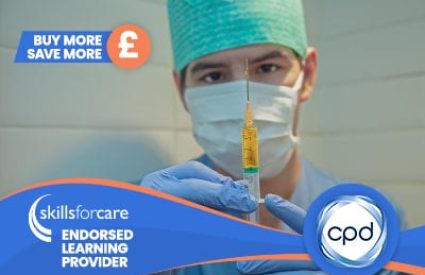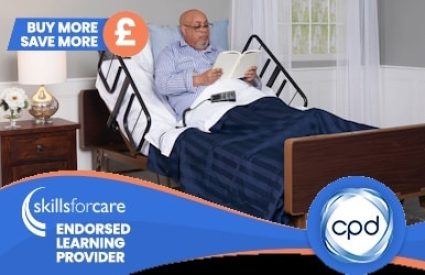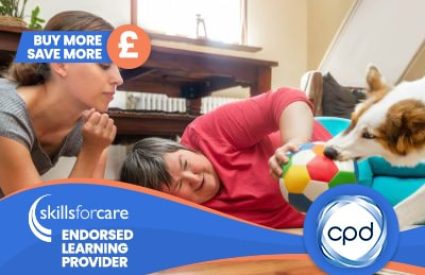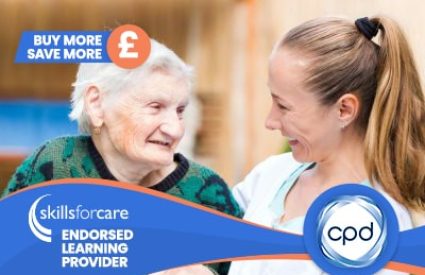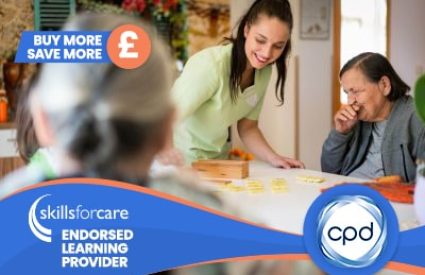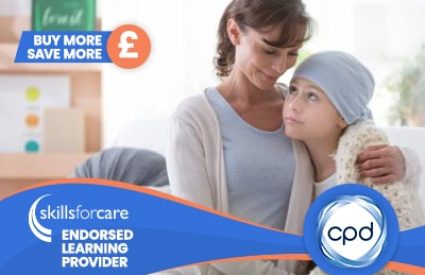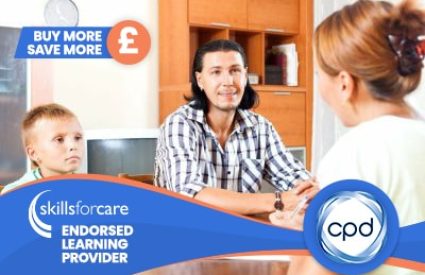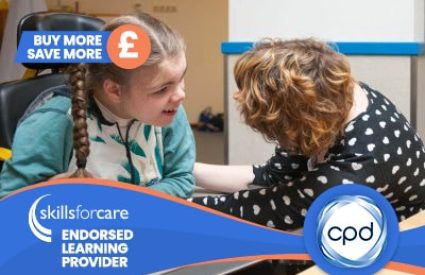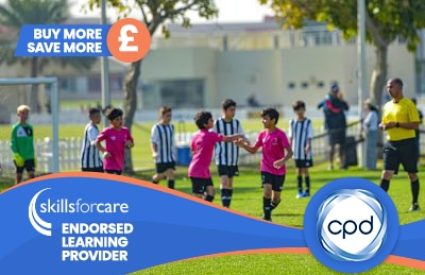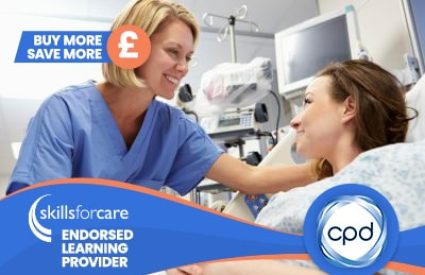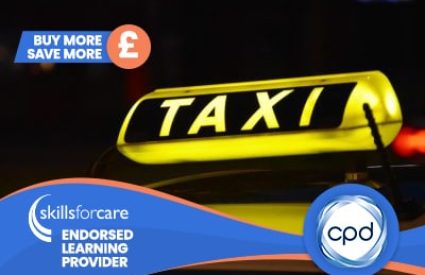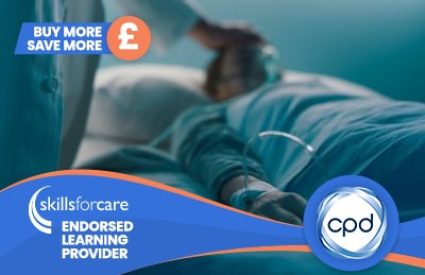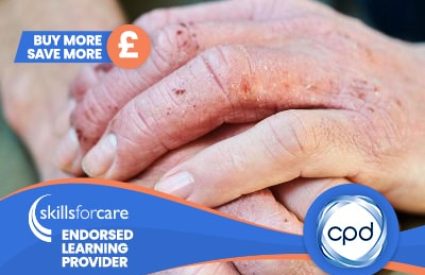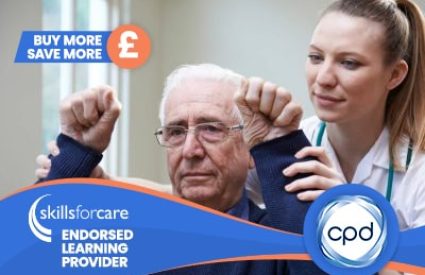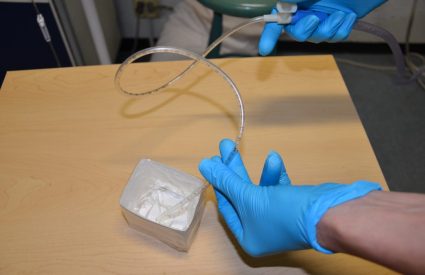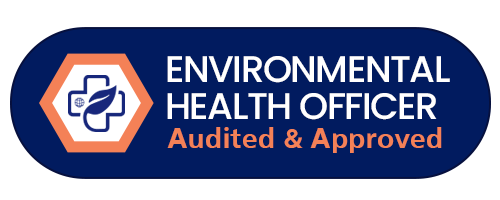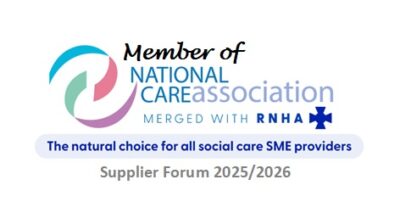Money Back Guarantee
Online Training 24/7
1 Million Certificates issued
Instant Course Access
Online CPD Accredited Courses
When you’re planning refresher training, induction, CPD (Continuing Professional Development) or to increase your awareness you need to know that you’re choosing training that is fully accredited, nationally recognised, certificated and endorsed by professionals. Caredemy’s online courses meet all of these criteria and more. We offer a range of 100+ online courses for health and social care CPD, all written by experienced care professionals. And, of course, our courses always offer great value for money.
CPD Accredited Courses
Acute Care Course
£20.00 Original price was: £20.00.£9.47Current price is: £9.47. +VAT
Advance Care Planning & Record Keeping Course
£20.00 Original price was: £20.00.£9.47Current price is: £9.47. +VAT
Age Discrimination Course
£20.00 Original price was: £20.00.£9.47Current price is: £9.47. +VAT
Alcohol Awareness Training Course
£20.00 Original price was: £20.00.£9.47Current price is: £9.47. +VAT
Allergen (allergy) Course
£20.00 Original price was: £20.00.£9.47Current price is: £9.47. +VAT
Alzheimer’s Disease Course
£20.00 Original price was: £20.00.£9.47Current price is: £9.47. +VAT
Anaphylaxis Course
£20.00 Original price was: £20.00.£9.47Current price is: £9.47. +VAT
Anxiety and Panic Attacks Course
£20.00 Original price was: £20.00.£9.47Current price is: £9.47. +VAT
Associated Infections Working In Care – Level 4 Course
£30.00 Original price was: £30.00.£14.90Current price is: £14.90. +VAT
Attachment and Trauma-Informed Care in Children Course
£20.00 Original price was: £20.00.£9.47Current price is: £9.47. +VAT
Autism Online Course for Working with Children
£20.00 Original price was: £20.00.£9.47Current price is: £9.47. +VAT
Autism Spectrum Disorder in Adults Course
£20.00 Original price was: £20.00.£9.47Current price is: £9.47. +VAT
Awareness of Equality, Diversity and Inclusion Course
£20.00 Original price was: £20.00.£9.47Current price is: £9.47. +VAT
Basic Food Hygiene Level 1 Course
£20.00 Original price was: £20.00.£9.47Current price is: £9.47. +VAT
Basic Life Support (Resuscitation) Course
£20.00 Original price was: £20.00.£9.47Current price is: £9.47. +VAT
Behaviours that Challenge Course
£20.00 Original price was: £20.00.£9.47Current price is: £9.47. +VAT
Being a Mental Health First Aider Course
£20.00 Original price was: £20.00.£9.47Current price is: £9.47. +VAT
Blood Transfusions Course
£20.00 Original price was: £20.00.£9.47Current price is: £9.47. +VAT
Brain Injury Course
£20.00 Original price was: £20.00.£9.47Current price is: £9.47. +VAT
Bullying & Harassment in the Workplace Course
£20.00 Original price was: £20.00.£9.47Current price is: £9.47. +VAT
Care Certificate Course
£30.00 Original price was: £30.00.£15.00Current price is: £15.00. +VAT
Care Certificate Standard 1 – Understand Your Role Course
£20.00 Original price was: £20.00.£9.47Current price is: £9.47. +VAT
Care Certificate Standard 10 – Safeguarding Adults Course
£20.00 Original price was: £20.00.£9.47Current price is: £9.47. +VAT
Care Certificate Standard 11 – Safeguarding Children Course Course
£20.00 Original price was: £20.00.£9.47Current price is: £9.47. +VAT
Care Certificate Standard 12 – Basic Life Support Course
£20.00 Original price was: £20.00.£9.47Current price is: £9.47. +VAT
Care Certificate Standard 13 – Health and Safety Awareness Course
£20.00 Original price was: £20.00.£9.47Current price is: £9.47. +VAT
Care Certificate Standard 14 – Information Governance Course
£20.00 Original price was: £20.00.£9.47Current price is: £9.47. +VAT
Care Certificate Standard 15 – Infection Prevention and Control Course
£20.00 Original price was: £20.00.£9.47Current price is: £9.47. +VAT
Care Certificate Standard 2 – Your Personal Development
£20.00 Original price was: £20.00.£9.47Current price is: £9.47. +VAT
Care Certificate Standard 3 – Duty Of Care Course
£20.00 Original price was: £20.00.£9.47Current price is: £9.47. +VAT
Care Certificate Standard 4 – Equality, Diversity and Inclusion Course
£20.00 Original price was: £20.00.£9.47Current price is: £9.47. +VAT
Care Certificate Standard 5 – Work In A Person Centred Way Course
£20.00 Original price was: £20.00.£9.47Current price is: £9.47. +VAT
Care Certificate Standard 6 – Communication Course
£20.00 Original price was: £20.00.£9.47Current price is: £9.47. +VAT
Care Certificate Standard 7 – Privacy and Dignity Course
£20.00 Original price was: £20.00.£9.47Current price is: £9.47. +VAT
Care Certificate Standard 8 – Fluids and Nutrition Course
£20.00 Original price was: £20.00.£9.47Current price is: £9.47. +VAT
Care Certificate Standard 9 – Awareness of Mental Health Course
£20.00 Original price was: £20.00.£9.47Current price is: £9.47. +VAT
Care Certificate Standard 9 – Dementia Course
£20.00 Original price was: £20.00.£9.47Current price is: £9.47. +VAT
Care Certificate Standard Number 16 – Awareness of Learning Disability and Autism Course
£20.00 Original price was: £20.00.£9.47Current price is: £9.47. +VAT
Catheterisation Course
£20.00 Original price was: £20.00.£9.47Current price is: £9.47. +VAT
Chaperones Course
£20.00 Original price was: £20.00.£9.47Current price is: £9.47. +VAT
Child Criminal Exploitation CCE Course
£20.00 Original price was: £20.00.£9.47Current price is: £9.47. +VAT
Child Mental Health Awareness Course
£20.00 Original price was: £20.00.£9.47Current price is: £9.47. +VAT
Child Sexual Exploitation CSE Course
£20.00 Original price was: £20.00.£9.47Current price is: £9.47. +VAT
Childcare Agency Bundle
£113.00 Original price was: £113.00.£50.00Current price is: £50.00. +VAT
Conflict Resolution in Primary Care Course
£20.00 Original price was: £20.00.£9.47Current price is: £9.47. +VAT
Conflict Resolution: An Introduction Level 1 Course
£20.00 Original price was: £20.00.£9.47Current price is: £9.47. +VAT
Conflict Resolution: Contributing Factors Level 2 Course
£20.00 Original price was: £20.00.£9.47Current price is: £9.47. +VAT
Conflict Resolution: Strategies for Communicating Level 3 Course
£30.00 Original price was: £30.00.£14.90Current price is: £14.90. +VAT
Control & Administration of Medicines (2 Course Bundle)
£40.00 Original price was: £40.00.£18.00Current price is: £18.00. +VAT
Control and Administration of Medicines: Governance Arrangements and Accountability Level 2 Course
£20.00 Original price was: £20.00.£9.47Current price is: £9.47. +VAT
Control and Administration of Medicines: Risk Assessments, Reporting, and Administration Level 3 Course
£30.00 Original price was: £30.00.£14.90Current price is: £14.90. +VAT
Core Skills Training Framework (CSTF) Course
£310.00 Original price was: £310.00.£39.95Current price is: £39.95. +VAT
COSHH Training Course
£20.00 Original price was: £20.00.£9.47Current price is: £9.47. +VAT
COVID-19 Awareness Course
£20.00 Original price was: £20.00.£9.47Current price is: £9.47. +VAT
Cybersecurity and Fraud Course
£20.00 Original price was: £20.00.£9.47Current price is: £9.47. +VAT
Dementia Level 3 Course
£30.00 Original price was: £30.00.£14.90Current price is: £14.90. +VAT
Designated Safeguarding Lead (DSL) Training Course
£20.00 Original price was: £20.00.£9.47Current price is: £9.47. +VAT
Diabetes in Adults Course
£20.00 Original price was: £20.00.£9.47Current price is: £9.47. +VAT
Diabetes in Children Course
£20.00 Original price was: £20.00.£9.47Current price is: £9.47. +VAT
Disability Discrimination Course
£20.00 Original price was: £20.00.£9.47Current price is: £9.47. +VAT
Domestic Violence and Abuse – Level 1 Course
£20.00 Original price was: £20.00.£9.47Current price is: £9.47. +VAT
Domiciliary Home Carer 1 Day Mandatory (17 Courses) course
£250.00 Original price was: £250.00.£39.95Current price is: £39.95. +VAT
Drug Calculations Course
£20.00 Original price was: £20.00.£9.47Current price is: £9.47. +VAT
Drugs and Alcohol National Occupational Standards Course
£20.00 Original price was: £20.00.£9.47Current price is: £9.47. +VAT
Duty of Candour Course (Level 4)
£30.00 Original price was: £30.00.£14.90Current price is: £14.90. +VAT
Duty Of Care Course
£20.00 Original price was: £20.00.£9.47Current price is: £9.47. +VAT
Dysphagia Awareness Course
£20.00 Original price was: £20.00.£9.47Current price is: £9.47. +VAT
Effective Communication Course
£20.00 Original price was: £20.00.£9.47Current price is: £9.47. +VAT
Effective supervision A practical guide for adult social care managers and supervisors Course
£0.00 +VAT
End of Life Care for Adults Course
£20.00 Original price was: £20.00.£9.47Current price is: £9.47. +VAT
Epilepsy Awareness Course
£20.00 Original price was: £20.00.£9.47Current price is: £9.47. +VAT
Essential Care Skills: The Comprehensive Course
£120.00 Original price was: £120.00.£25.00Current price is: £25.00. +VAT
Female Genital Mutilation Course
£20.00 Original price was: £20.00.£9.47Current price is: £9.47. +VAT
Fire Extinguisher Training Course
£20.00 Original price was: £20.00.£9.47Current price is: £9.47. +VAT
Fire Safety Awareness (2 Course Bundle)
£40.00 Original price was: £40.00.£18.00Current price is: £18.00. +VAT
Fire Safety Awareness: An Introduction Course
£20.00 Original price was: £20.00.£9.47Current price is: £9.47. +VAT
Fire Safety Awareness: Fire Signs, Guides, Equipment, and Evacuation Course
£20.00 Original price was: £20.00.£9.47Current price is: £9.47. +VAT
First Aid – Paediatrics (2 Courses Bundle)
£40.00 Original price was: £40.00.£18.00Current price is: £18.00. +VAT
First Aid (Resuscitation) Level 2 Course
£20.00 Original price was: £20.00.£9.47Current price is: £9.47. +VAT
First Aid at Work Course
£20.00 Original price was: £20.00.£9.47Current price is: £9.47. +VAT
Fit and Proper Persons Employed in Care Course (Level 4)
£30.00 Original price was: £30.00.£14.90Current price is: £14.90. +VAT
Fluid Balance & Vital Signs Course
£20.00 Original price was: £20.00.£9.47Current price is: £9.47. +VAT
Food Hygiene And Safety For Catering Certificate Level 2
£20.00 Original price was: £20.00.£9.47Current price is: £9.47. +VAT
Food Hygiene And Safety For Childminders (Level 2) Course
£20.00 Original price was: £20.00.£9.47Current price is: £9.47. +VAT
Food Hygiene And Safety For Residential Care Homes (Level 2) Course
£20.00 Original price was: £20.00.£9.47Current price is: £9.47. +VAT
Food Hygiene And Safety For Retailers (Level 2) Course
£20.00 Original price was: £20.00.£9.47Current price is: £9.47. +VAT
Food Hygiene and Safety in Manufacturing Course Level 1
£20.00 Original price was: £20.00.£9.47Current price is: £9.47. +VAT
Food Labelling Regulations Course
£20.00 Original price was: £20.00.£9.47Current price is: £9.47. +VAT
Food Safety & Hygiene Course
£40.00 Original price was: £40.00.£18.00Current price is: £18.00. +VAT
Food Safety in Manufacturing Level 2 Course
£20.00 Original price was: £20.00.£9.47Current price is: £9.47. +VAT
Food Safety Management: Hazard Analysis & Critical Control Point (HACCP)
£20.00 Original price was: £20.00.£9.47Current price is: £9.47. +VAT
Food Safety: Food Hygiene Course For Healthcare (Level 2)
£20.00 Original price was: £20.00.£9.47Current price is: £9.47. +VAT
Fraud Awareness Training Course
£20.00 Original price was: £20.00.£9.47Current price is: £9.47. +VAT
Gender Equality Course
£20.00 Original price was: £20.00.£9.47Current price is: £9.47. +VAT
General Data Protection Regulation (GDPR) Course
£20.00 Original price was: £20.00.£9.47Current price is: £9.47. +VAT
Good Governance in Care Course (Level 4)
£30.00 Original price was: £30.00.£14.90Current price is: £14.90. +VAT
Grooming Course
£20.00 Original price was: £20.00.£9.47Current price is: £9.47. +VAT
Hand Hygiene Course
£20.00 Original price was: £20.00.£9.47Current price is: £9.47. +VAT
Health and Safety Awareness Course
£20.00 Original price was: £20.00.£9.47Current price is: £9.47. +VAT
Health and Safety Awareness in Primary Care Course
£20.00 Original price was: £20.00.£9.47Current price is: £9.47. +VAT
Home Care: Practical Support & Personal Care Delivery Course
£20.00 Original price was: £20.00.£9.47Current price is: £9.47. +VAT
Improving Your Food Hygiene Rating Course
£20.00 Original price was: £20.00.£0.00Current price is: £0.00. +VAT
Infection Prevention and Control (An Understanding) Level 2 Course
£20.00 Original price was: £20.00.£9.47Current price is: £9.47. +VAT
Infection Prevention and Control for Non-Clinical Workers
£20.00 Original price was: £20.00.£9.47Current price is: £9.47. +VAT
Infection Prevention and Control Level 1
£20.00 Original price was: £20.00.£9.47Current price is: £9.47. +VAT
Infection Prevention and Control Level 2
£20.00 Original price was: £20.00.£9.47Current price is: £9.47. +VAT
Infection Prevention and Control: Level 1 Course – An introduction
£20.00 Original price was: £20.00.£9.47Current price is: £9.47. +VAT
Infection Prevention and Control: Level 3 – Compliance and Management Course
£30.00 Original price was: £30.00.£14.90Current price is: £14.90. +VAT
Information Governance Training Course
£20.00 Original price was: £20.00.£9.47Current price is: £9.47. +VAT
Ionising Radiation (Medical Exposure) Regulations Course
£20.00 Original price was: £20.00.£9.47Current price is: £9.47. +VAT
IV Drug Therapy Course
£20.00 Original price was: £20.00.£9.47Current price is: £9.47. +VAT
Learning Disabilities (2 Course Bundle)
£40.00 Original price was: £40.00.£18.00Current price is: £18.00. +VAT
Learning Disabilities & Autism: Physical and Mental Health Course
£20.00 Original price was: £20.00.£9.47Current price is: £9.47. +VAT
Learning Disabilities and Autism – Leadership Management Education and Research Course
£20.00 Original price was: £20.00.£9.47Current price is: £9.47. +VAT
Learning Disabilities and Autism – Risk Legislation and Safeguarding Course
£20.00 Original price was: £20.00.£9.47Current price is: £9.47. +VAT
Learning Disabilities and Autism Personalised Support Course
£20.00 Original price was: £20.00.£9.47Current price is: £9.47. +VAT
Learning Disabilities: Good Communication Practices for Persons with Learning Disabilities Course
£20.00 Original price was: £20.00.£9.47Current price is: £9.47. +VAT
Learning Disabilities: Understanding the Types of Learning Disabilities Course
£20.00 Original price was: £20.00.£9.47Current price is: £9.47. +VAT
Legionnaire’s Disease Course
£20.00 Original price was: £20.00.£9.47Current price is: £9.47. +VAT
Liberty Protection Safeguards Online Training Course
£20.00 Original price was: £20.00.£9.47Current price is: £9.47. +VAT
Lidocaine Infusions Course
£20.00 Original price was: £20.00.£9.47Current price is: £9.47. +VAT
Lone Worker Essentials Course
£20.00 Original price was: £20.00.£9.47Current price is: £9.47. +VAT
Long COVID Framework for Nursing, Midwifery, & Care Staff Course
£20.00 Original price was: £20.00.£9.47Current price is: £9.47. +VAT
Managing Behaviour in Early Years Course
£20.00 Original price was: £20.00.£9.47Current price is: £9.47. +VAT
Managing Medicines in Care Homes Course
£20.00 Original price was: £20.00.£9.47Current price is: £9.47. +VAT
Managing Medicines in Social Care Course
£20.00 Original price was: £20.00.£9.47Current price is: £9.47. +VAT
Managing Oral Health Course
£20.00 Original price was: £20.00.£9.47Current price is: £9.47. +VAT
Managing Patient Deaths: An Understanding – Level 1 Course
£20.00 Original price was: £20.00.£9.47Current price is: £9.47. +VAT
Managing Patient Deaths: Communication & Empathy – Level 2 Course
£20.00 Original price was: £20.00.£9.47Current price is: £9.47. +VAT
Managing Patient Deaths: Compliance & Management – Level 3 Course
£30.00 Original price was: £30.00.£14.90Current price is: £14.90. +VAT
Managing Urinary Incontinence Course
£20.00 Original price was: £20.00.£9.47Current price is: £9.47. +VAT
Mandatory and statutory training for adult social care
£123.00 Original price was: £123.00.£39.95Current price is: £39.95. +VAT
Mandatory Training For Agency Nurses
£180.00 Original price was: £180.00.£39.95Current price is: £39.95. +VAT
Mandatory Training For Agency Workers
£180.00 Original price was: £180.00.£39.95Current price is: £39.95. +VAT
Mandatory Training For Allied Health Professionals
£180.00 Original price was: £180.00.£39.95Current price is: £39.95. +VAT
Mandatory Training For Care
£150.00 Original price was: £150.00.£39.95Current price is: £39.95. +VAT
Mandatory Training For Care Assistants
£170.00 Original price was: £170.00.£39.95Current price is: £39.95. +VAT
Mandatory Training For Care Home Staff
£170.00 Original price was: £170.00.£39.95Current price is: £39.95. +VAT
Mandatory Training For Care Staff and Care Workers
£150.00 Original price was: £150.00.£39.95Current price is: £39.95. +VAT
Mandatory Training For Care Volunteers
£180.00 Original price was: £180.00.£39.95Current price is: £39.95. +VAT
Mandatory Training For Dental Nurses
£180.00 Original price was: £180.00.£39.95Current price is: £39.95. +VAT
Mandatory Training For Dental Technicians
£180.00 Original price was: £180.00.£39.95Current price is: £39.95. +VAT
Mandatory Training For Dentists
£180.00 Original price was: £180.00.£39.95Current price is: £39.95. +VAT
Mandatory Training For Doctors
£180.00 Original price was: £180.00.£39.95Current price is: £39.95. +VAT
Mandatory Training For Domiciliary Home Care
£280.00 Original price was: £280.00.£39.95Current price is: £39.95. +VAT
Mandatory Training For General Practitioners
£180.00 Original price was: £180.00.£39.95Current price is: £39.95. +VAT
Mandatory Training For Healthcare Assistants
£180.00 Original price was: £180.00.£39.95Current price is: £39.95. +VAT
Mandatory Training For Locum Doctors
£180.00 Original price was: £180.00.£39.95Current price is: £39.95. +VAT
Mandatory Training For Non Clinical Care
£120.00 Original price was: £120.00.£39.95Current price is: £39.95. +VAT
Mandatory Training For Nurses
£180.00 Original price was: £180.00.£39.95Current price is: £39.95. +VAT
Mandatory Training For Nursing Home Staff
£170.00 Original price was: £170.00.£39.95Current price is: £39.95. +VAT
Mandatory Training For Personal Assistants
£120.00 Original price was: £120.00.£39.95Current price is: £39.95. +VAT
Mandatory Training For Practice Nurses
£180.00 Original price was: £180.00.£39.95Current price is: £39.95. +VAT
Mandatory Training For Residential Home Staff
£170.00 Original price was: £170.00.£39.95Current price is: £39.95. +VAT
Mandatory Training For Support Workers
£170.00 Original price was: £170.00.£39.95Current price is: £39.95. +VAT
Medicines Optimisation: An Introduction Level 2 Course
£20.00 Original price was: £20.00.£9.47Current price is: £9.47. +VAT
Medicines Optimisation: Management Plan, Systems, and Reconciliation Level 3 Course
£30.00 Original price was: £30.00.£14.90Current price is: £14.90. +VAT
Medicines Optimisation: Safe & Effective Use of Medication (2 Courses Bundle)
£40.00 Original price was: £40.00.£18.00Current price is: £18.00. +VAT
Meeting Nutritional and Hydration Needs Course (Level 4)
£30.00 Original price was: £30.00.£14.90Current price is: £14.90. +VAT
Meeting the Accessible Information Standard Course
£20.00 Original price was: £20.00.£9.47Current price is: £9.47. +VAT
Menopause at Work Course
£20.00 Original price was: £20.00.£9.47Current price is: £9.47. +VAT
Mental Health Awareness Training Course
£20.00 Original price was: £20.00.£9.47Current price is: £9.47. +VAT
Mental Health First Aid at Work Course
£20.00 Original price was: £20.00.£9.47Current price is: £9.47. +VAT
Mental Health First Aiders Guide for Employers Course
£20.00 Original price was: £20.00.£9.47Current price is: £9.47. +VAT
Mental Health in People with Learning Disabilities Course
£20.00 Original price was: £20.00.£9.47Current price is: £9.47. +VAT
Mental Health Wellbeing at Work
£20.00 Original price was: £20.00.£9.47Current price is: £9.47. +VAT
Mental Wellbeing in Over 65s Course
£20.00 Original price was: £20.00.£9.47Current price is: £9.47. +VAT
Mentoring for Mentors Course
£20.00 Original price was: £20.00.£9.47Current price is: £9.47. +VAT
Modern Slavery Awareness Course
£20.00 Original price was: £20.00.£9.47Current price is: £9.47. +VAT
Motor Neuron Disease Course
£20.00 Original price was: £20.00.£9.47Current price is: £9.47. +VAT
Moving and Handling Course For Carers & Care Workers
£20.00 Original price was: £20.00.£9.47Current price is: £9.47. +VAT
Moving and Handling in Primary Care Course
£20.00 Original price was: £20.00.£9.47Current price is: £9.47. +VAT
Moving and Handling Patients Course
£20.00 Original price was: £20.00.£9.47Current price is: £9.47. +VAT
Moving and Handling Patients in Primary Care Course
£20.00 Original price was: £20.00.£9.47Current price is: £9.47. +VAT
Multiple Sclerosis Course
£20.00 Original price was: £20.00.£9.47Current price is: £9.47. +VAT
National Early Warning Score in Community Nursing & Residential Homes Course
£20.00 Original price was: £20.00.£9.47Current price is: £9.47. +VAT
Need for Consent in Care Course (Level 4)
£30.00 Original price was: £30.00.£14.90Current price is: £14.90. +VAT
New to care training
£166.00 Original price was: £166.00.£39.95Current price is: £39.95. +VAT
Nutrition & Healthy Eating Course
£20.00 Original price was: £20.00.£9.47Current price is: £9.47. +VAT
Obsessive Compulsive Disorder OCD Course
£20.00 Original price was: £20.00.£9.47Current price is: £9.47. +VAT
Outdoor Play and Risk Assessment for Children Course
£20.00 Original price was: £20.00.£9.47Current price is: £9.47. +VAT
Oxygen Therapy Course
£20.00 Original price was: £20.00.£9.47Current price is: £9.47. +VAT
Paediatric First Aid – Level 3 Course
£30.00 Original price was: £30.00.£14.90Current price is: £14.90. +VAT
Palliative & End of Life Care Course
£20.00 Original price was: £20.00.£9.47Current price is: £9.47. +VAT
Parkinson’s Disease Course
£20.00 Original price was: £20.00.£9.47Current price is: £9.47. +VAT
PEG Feeding Online Training Course (Percutaneous Endoscopic Gastrostomy)
£20.00 Original price was: £20.00.£9.47Current price is: £9.47. +VAT
Person-Centred Approaches Step 1 and 2 (2 Course Bundle)
£40.00 Original price was: £40.00.£18.00Current price is: £18.00. +VAT
Person-Centred Approaches Step 1 Course
£20.00 Original price was: £20.00.£9.47Current price is: £9.47. +VAT
Person-Centred Care Course
£20.00 Original price was: £20.00.£9.47Current price is: £9.47. +VAT
Personal Protective Equipment (PPE) Training Course
£20.00 Original price was: £20.00.£9.47Current price is: £9.47. +VAT
Personalised Care Planning Course
£20.00 Original price was: £20.00.£9.47Current price is: £9.47. +VAT
Physical Intervention & Restraint Awareness Online Training Course
£20.00 Original price was: £20.00.£9.47Current price is: £9.47. +VAT
Positive Behavioural Support Course
£20.00 Original price was: £20.00.£9.47Current price is: £9.47. +VAT
Post Traumatic Stress Disorder PTSD Course
£20.00 Original price was: £20.00.£9.47Current price is: £9.47. +VAT
Pregnancy and Maternity Discrimination Course
£20.00 Original price was: £20.00.£9.47Current price is: £9.47. +VAT
Premises and Equipment in Care Course (Level 4)
£30.00 Original price was: £30.00.£14.90Current price is: £14.90. +VAT
Preparing to Work in Care – Level 2 Course
£20.00 Original price was: £20.00.£9.47Current price is: £9.47. +VAT
Preventing Slips Trips and Falls Course
£20.00 Original price was: £20.00.£9.47Current price is: £9.47. +VAT
Principles of Consent Course
£20.00 Original price was: £20.00.£9.47Current price is: £9.47. +VAT
Privacy and Dignity in care Course
£20.00 Original price was: £20.00.£9.47Current price is: £9.47. +VAT
Professional and Personal Boundaries in Care Settings Course
£20.00 Original price was: £20.00.£9.47Current price is: £9.47. +VAT
Promoting Understanding of Equality, Diversity, & Inclusion (7 Course Bundle)
£20.00 Original price was: £20.00.£9.47Current price is: £9.47. +VAT
Providing Fluids and Nutrition (Hydration) Course
£20.00 Original price was: £20.00.£9.47Current price is: £9.47. +VAT
Race & Ethnicity Discrimination Course
£20.00 Original price was: £20.00.£9.47Current price is: £9.47. +VAT
Reablement Course
£20.00 Original price was: £20.00.£9.47Current price is: £9.47. +VAT
Receiving and Acting on Complaints In Care Course (Level 4)
£30.00 Original price was: £30.00.£14.90Current price is: £14.90. +VAT
Religion & Belief Discrimination Course
£20.00 Original price was: £20.00.£9.47Current price is: £9.47. +VAT
Resuscitation – Paediatrics: An Understanding Course
£20.00 Original price was: £20.00.£9.47Current price is: £9.47. +VAT
Resuscitation – Paediatrics: CPR, Choking, and Resuscitation Course
£20.00 Original price was: £20.00.£9.47Current price is: £9.47. +VAT
RIDDOR Course
£20.00 Original price was: £20.00.£9.47Current price is: £9.47. +VAT
Risk Assessment And Management In Care Level 3 Course
£30.00 Original price was: £30.00.£14.90Current price is: £14.90. +VAT
Risk Assessments Course
£20.00 Original price was: £20.00.£9.47Current price is: £9.47. +VAT
Safe Care and Treatment Course (Level 4)
£30.00 Original price was: £30.00.£14.90Current price is: £14.90. +VAT
Safe Handling of Sharps and Needles Course
£20.00 Original price was: £20.00.£9.47Current price is: £9.47. +VAT
Safe Use and Management of Bed Rails Course
£20.00 Original price was: £20.00.£9.47Current price is: £9.47. +VAT
Safeguarding Adults in Care Homes Course
£20.00 Original price was: £20.00.£9.47Current price is: £9.47. +VAT
Safeguarding Adults Level 1 Course
£20.00 Original price was: £20.00.£9.47Current price is: £9.47. +VAT
Safeguarding Adults Level 1,2 & 3
£54.00 Original price was: £54.00.£24.97Current price is: £24.97. +VAT
Safeguarding Adults Level 2 Course
£20.00 Original price was: £20.00.£9.47Current price is: £9.47. +VAT
Safeguarding Adults Level 3 Course
£30.00 Original price was: £30.00.£14.90Current price is: £14.90. +VAT
Safeguarding Children in Education, for Schools and Colleges (Level 2)
£20.00 Original price was: £20.00.£9.47Current price is: £9.47. +VAT
Safeguarding Children Level 1 Training Course
£20.00 Original price was: £20.00.£9.47Current price is: £9.47. +VAT
Safeguarding Children Level 2 Course
£20.00 Original price was: £20.00.£9.47Current price is: £9.47. +VAT
Safeguarding Children Level 3 Course
£30.00 Original price was: £30.00.£14.90Current price is: £14.90. +VAT
Safeguarding Children with Disabilities Course
£20.00 Original price was: £20.00.£9.47Current price is: £9.47. +VAT
Safeguarding in Sport Course
£20.00 Original price was: £20.00.£9.47Current price is: £9.47. +VAT
Safeguarding Service Users from Abuse & Improper Treatment Course
£20.00 Original price was: £20.00.£9.47Current price is: £9.47. +VAT
Safeguarding Training for Taxi Drivers Course
£20.00 Original price was: £20.00.£9.47Current price is: £9.47. +VAT
Sepsis Awareness Course
£20.00 Original price was: £20.00.£9.47Current price is: £9.47. +VAT
Sexual Orientation And Discrimination Course
£20.00 Original price was: £20.00.£9.47Current price is: £9.47. +VAT
Skin Diseases At Work Course
£20.00 Original price was: £20.00.£9.47Current price is: £9.47. +VAT
Staffing In Care Course (Level 4)
£30.00 Original price was: £30.00.£14.90Current price is: £14.90. +VAT
Stoma Care Awareness Course
£20.00 Original price was: £20.00.£9.47Current price is: £9.47. +VAT
Stress & Burnout Course
£20.00 Original price was: £20.00.£9.47Current price is: £9.47. +VAT
Stroke Awareness & Rehabilitation Course
£20.00 Original price was: £20.00.£9.47Current price is: £9.47. +VAT
Suctioning Course
£20.00 Original price was: £20.00.£9.47Current price is: £9.47. +VAT
Why train with Caredemy skills academy?
Our high quality online care training courses are fully compliant with the relevant UK health and social care training frameworks. We are independently accredited by the CPD Standards Office and members of ALLIANCE, the National Care Association and The Association of Healthcare Trainers. We are an endorsed training provider for the skills for care.
You can enrol your staff by email or by access code, and they’ll get instant access to our online training portal. Our user-friendly Learner Management System makes it simple to keep track of learner progress and provide evidence of CPD online training for audit compliance and reporting.
Caredemy’s low fees include 12 months access to the training materials and unlimited resits if required. We’ll even send your users a reminder when their course expiry date is getting close and they’ll receive a CPD certificate after passing their exam.
CPD Online training that really works
Caredemy online courses are written by experienced industry professionals. They are designed from the ground up to be user-friendly, interactive and easy to navigate and our online training portal automatically saves your learners’ course progress so they can easily pick up where they left off.
Everyone has their own style of learning, so staff who prefer not to study online can take their learning offline with our downloadable PDF-format course materials. Multiple choice quizzes and assessments help them to keep track of their progress and prepare for their end-of course exam.
Online courses are only effective and good value for money if your staff are actually completing them. Our user-friendly Learner Management System and engaging course materials mean that learners enjoy their studies and go on to complete their courses. This ensures that you comply with the relevant CQC training requirements and gives your staff the knowledge and skills they’ll need to provide excellent service.
Excellent service and best price guaranteed
Caredemy training courses will save you time and money by providing truly excellent online health and social care training with prices starting from less than £1 per user.
And we’re so confident that our training courses represent great value that we guarantee that we will beat your current care training provider’s price.
To start planning your CPD training programme, take a look through our CPD courses online.
Reliable training for your staff from 0.47p
We provide reliable training for your staff
- We provide a better training experience and will help to get your staff training up and running
- Our Learner Management System is easy to use and learners actually complete there courses!
- We will help you set up and migrate training systems



